MercoPress. South Atlantic News Agency
Tag: Brazilian industry
-
Wednesday, April 3rd 2024 - 19:25 UTC
Brazilian industry slides for second straight month
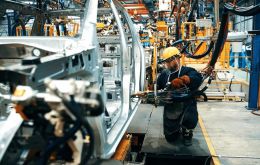
According to the Monthly Industrial Survey released Wednesday by Brazil's Rio de Janeiro-based Institute of Geography and Statistics (IBGE), industrial production in South America's largest country fell 0.3% in February, which represented its second straight monthly decline after January's -1.5%, Agencia Brasil reported.
-
Tuesday, January 23rd 2024 - 10:36 UTC
Brazil's gov't pushes for further industrial development

President Luiz Inácio Lula da Silva Monday launched the New Industry Brazil (NIB) plan which promises to invest R$ 300 billion (US$ 60.12 bn) by 2026 in a move to boost the South American country's economy. The project laid out by the National Industrial Development Council (CNDI) aims to transform Brazil's industry into a more innovative, green, exporting, and productive sector, it was explained.
-
Thursday, July 1st 2021 - 09:00 UTC
Brazilian industry and unions request suspension of Mercosur talks on reducing the Common External Tariff
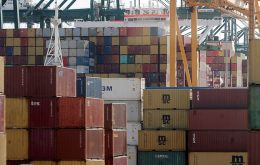
The Brazilian Confederation of Industry, CNI and the IndustriALL-Brasil (which represents industry unions) have officially requested that in the next Mercosur meeting, scheduled for early this month, Brazilian representatives withdraw the proposal for a reduction of block trade tariffs with other countries. However, both institutions also backed the current flexibilization of current trade talks with third countries, such as South Korea.
-
Wednesday, November 4th 2020 - 09:47 UTC
Brazilian manufacturing expands at a record pace in October
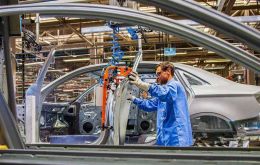
Brazilian manufacturing expanded at a record pace in October, a survey of purchasing managers' activity showed on Tuesday, as a rise in employment and export orders to new highs helped extend the sector's strong post-coronavirus recovery.
-
Tuesday, April 14th 2020 - 08:40 UTC
A Brazilian industry COVID-19 hasn't stopped: deforestation in the Amazon
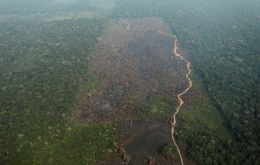
Deforestation in Brazil’s Amazon rainforest rose in March, government data showed on Friday, indicating that illegal loggers and land speculators have not stopped destroying the forest with the onset of the coronavirus outbreak.
-
Saturday, May 5th 2018 - 09:05 UTC
Brazilian recovery stalls as industrial output falls 0.1% in March

Industrial output in Brazil contracted unexpectedly in March, the latest in a string of weak data suggesting a recovery in Latin America's largest economy hit a bump in the first quarter. Production fell 0.1% from February, government statistics agency IBGE announced.
-
Monday, November 6th 2017 - 08:37 UTC
Brazilian industrial activity reports its best September since 2013
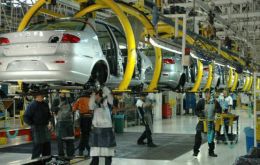
After two years of the most severe recession facing Brazil, economic indicators continue to mark a more positive horizon for the Brazilian economy. Data released by the Brazilian Institute of Geography and Statistics (IBGE) show that the Brazilian industry is heading for a recovery scenario.
-
Tuesday, March 10th 2015 - 06:56 UTC
Renewal of car quotas with Mexico reveals shortcomings of Brazilian industry

Brazil and Mexico announced the renewal of vehicle quotas for four years, delaying the implementation of a free-trade agreement between the two countries. Under the new agreement, Brazil and Mexico will permit $1.56 billion of duty-free vehicle imports for the first year of the agreement. That amount will rise 3% each year until the agreement expires, in 2019, when they’ll return to a free-trade regime.
-
Monday, September 29th 2014 - 08:47 UTC
Opening the economy “would be a disaster for Brazilian industry” states Rousseff minister

Anticipating what could be policy under a second government of President Dilma Rousseff, her Trade Minister Mauro Borges told Brazilian daily Folha do Sao Paulo that opening the country to more foreign trade would be a “disaster for Brazilian industry” and lead to the “mexicanization” of the economy, in reference to the light assembly factories known as “maquiladoras” that dominate Mexico’s non-oil exports.
-
Thursday, July 3rd 2014 - 06:40 UTC
Brazilian industry contracts for the third month running in May

Brazilian industrial output fell for the third straight month in May despite efforts from government to prop manufacturing through stimulus measures. Industrial production in Brazil fell 0.6% in May from April, and 3.2% from the same month a year ago, and 1.6% in the five months of 2014, government statistics agency IBGE said on Wednesday.
